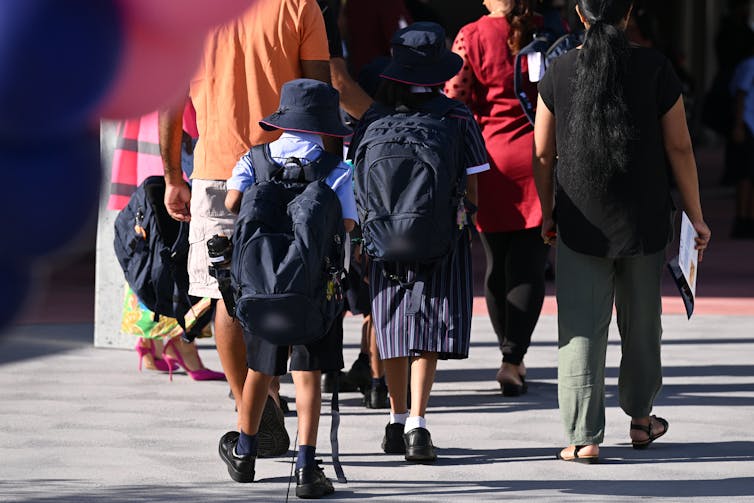
16 Mar Is your child unhappy at school?
Whether it’s a new teacher or class – parent and researcher Sarah Jefferson gives insights into what to do when your child is not loving it
The first signs were the half-eaten lunches coming home from high school. This was in stark contrast to the primary school years, where the box looked as if a demolition team had run through it with only a few crumbs left.
The problem was finally disclosed over a quiet chat before bedtime when we did our routine of “best, worst, funniest” thing that day. My child confided they really didn’t like their new maths class, and because they were so anxious about it, they’d stopped eating lunch.
Irrespective of whether it’s daycare, preschool, primary or high school, the news your child doesn’t like their new school, teacher, class – or all of the above – is always tough. Research also shows a child’s sense of belonging at school affects their motivation, engagement and well-being. So it is important not to dismiss your child’s concerns.
How should parents approach this situation?
Try debriefing and reviewing
Many businesses and organisations use after-action reviews to debrief after an event or project and learn from them.

Dean Lewins/AAP
A modified version of this tool can help you take an objective approach to the news your child is very unhappy with an element of their school life. You can adjust the level of your language and discussion based on the age of your child.
1. What is happening?
Asking your child to describe what is going on prompts them to think through what is actually happening and gives you some useful context. If, for instance, the class is happening late on a Friday afternoon, that may go some way to explaining why people are not their best selves at this time.
2. What went well?
This can tell you what your child can continue doing or what they are enjoying at school. Perhaps it was mat time at primary school, or they liked the person they sat next to in history class.
3. What went wrong?
This helps identify the area for improvement or what specifically needs fixing.
Perhaps your child is still getting used to changing classrooms and classes at high school. Or they can’t keep up with what the teacher is saying. Maybe there was a miscommunication.
What not to do
Unless there is a safety or serious well-being issue, it is highly unlikely changing your teacher and/or opting out of certain lessons will be your answer.
While avoiding might seem like a straightforward answer, like many things with anxiety, this reinforces a reward pathway in the brain that simply makes the anxiety worse and often harder to resolve down the track.
Generally, it’s useful to take a watch-and-see approach. This is particularly the case at the start of the school year when so many things and people are new.
Also, think about these things.
Think about making time to talk to your child’s teacher (not to say your child doesn’t like them, but to note they are struggling to get into the school year). A nicely-worded email is another way to approach this.
It is helpful for teachers to know if one of their students isn’t happy or at ease in their class. If the teacher doesn’t know about an issue, they can’t work to fix it.
Also, consider encouraging social events after school or on weekends with other kids and parents (depending on your child’s age). Building social networks outside school can ease anxiety in school.
In rare instances, there may be a serious issue that needs significant intervention. If that’s the case, your school has senior teachers – such as year-level coordinators or the principal – you can contact. It will also have other support processes, such as access to school counsellors.
In the case of my child, it turned out some well-timed group activities over the next few lessons helped them make a new friend. The lunchbox started coming home empty again.
In most cases, simply listening to and not dismissing your child’s concern will go a long way to help them through this time. As American education writer Parker J Palmer notes:
The human soul doesn’t want to be advised or fixed, or saved. It simply wants to be witnessed — to be seen, heard and companioned exactly as it is.![]()
Sarah Jefferson, Senior Lecturer in Education, Edith Cowan University
Main Image: Shutterstock
This article is republished from The Conversation under a Creative Commons license. Read the original article.

